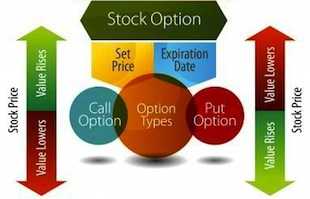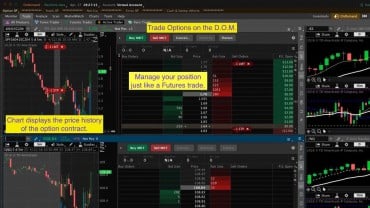2 min read

Contracts that grant the right but not the obligation, to buy or sale of the underlying asset to which they relate at the price indicated in the option contract until a certain date.
They can be issued on the basis of other financial instruments, financial non-material or real property. But behind each option must stand the asset to which the option is related.
The historical findings
There are historical findings that confirm their use during the Antiquity period. (The first options were used in ancient Greece to speculate on the olive harvest.)
But the fact is, trade options made great prosper in the last 50 years.
The most significant event that enabled their popularization was the establishment of the first arranged stock exchange option in Chicago in the year 1973. And under the name of the Chicago Board of Options.
Since then, a number of stock options have been established in the US and around the world.
Options are a very useful financial instrument because of their characteristics.
They offer investors a range of options. Traders and investors can use options as an instrument for speculation, Also for the protection and management of market risks (hedging) or for arbitration.
In this way to any investor in accordance with its goal of trading, current market position, expectations, and preferences.
According to the risk and personal preferences, options can create the desired position.
The right to buy is a call option and the right to sell is a put option.
Once again, options are the type of derivative. People a bit familiar with derivatives may not see an evident difference between this definition and what a future or forward contract does.

To clarify this thing. Futures or forwards confer both the right and obligation to buy or sell at some point in the future. For example, somebody short a futures contract for corn and has an obligation to deliver real corn to a buyer unless they close out their positions before expiration. An options contract does not carry the same obligation, which is precisely why it is called an “option.”
Once again, options are a great way to add flexibility to your portfolio since they can be used for both hedging risk and speculation.
Learn more to understand the World of Options
The benefits of options
 The benefits that options offer are high profitability, risk limitation, financial leverage, flexibility. And, which is important too, the ability to stay on the market without the need to own a marketable asset.
The benefits that options offer are high profitability, risk limitation, financial leverage, flexibility. And, which is important too, the ability to stay on the market without the need to own a marketable asset.
Unfortunately, the general public knows little about these instruments. So, part of the investors is not able to trade options because of ignorance about their use.
The options, like all derivative instruments, are complex in nature. And we have to know their capabilities and limitations. So that we can effectively use them for the stated purposes.
Trading with options is also specific and differs from trading with conventional financial instruments. That’s why the investor needs to be well aware of trading rules with options.
The brief review of options basics:
1) An option is a contract which brings to its holder the right, but not the obligation, to buy (in the case of a call) or sell (in the case of a put) shares of the underlying security at a specified price (the strike price) on or before a given date (expiration day).
After this given date, the option ceases to exist.
The seller of an option is, in turn, obligated to sell (in the case a call) or buy (in the case of a put) the shares to (or from) the buyer of the option at the specified price upon the buyer’s request.
Option contracts usually represent 100 shares of the underlying stock.
2) Strike prices or exercise prices. These are the stated price per share for which the underlying security may be purchased in the case of a call or sold in the case of a put. By the option holder upon exercise of the option contract. The strike price, a fixed specification of an option contract, should not be confused with the premium. That is the price at which the contract trades, which fluctuates daily.
 Equity option strike prices are listed in increments of 21/2, 5, or 10 points, depending on their price level.
Equity option strike prices are listed in increments of 21/2, 5, or 10 points, depending on their price level.
3) Regulation to an option contract size or strike price may be created to account for stock splits, mergers or other corporate actions. Overall, at any given time a particular option can be bought with one of four expiration dates.
4) Option holders do not enjoy the rights due to stockholders.
They don’t have voting rights, regular cash or special dividends, etc. A call holder must exercise the option and take ownership of underlying shares to be eligible for these rights.
5) Sellers and buyers in the exchange markets, where all trading is conducted in the competitive manner of an auction market, set option prices.
Risk Disclosure (read carefully!)



Leave a Reply